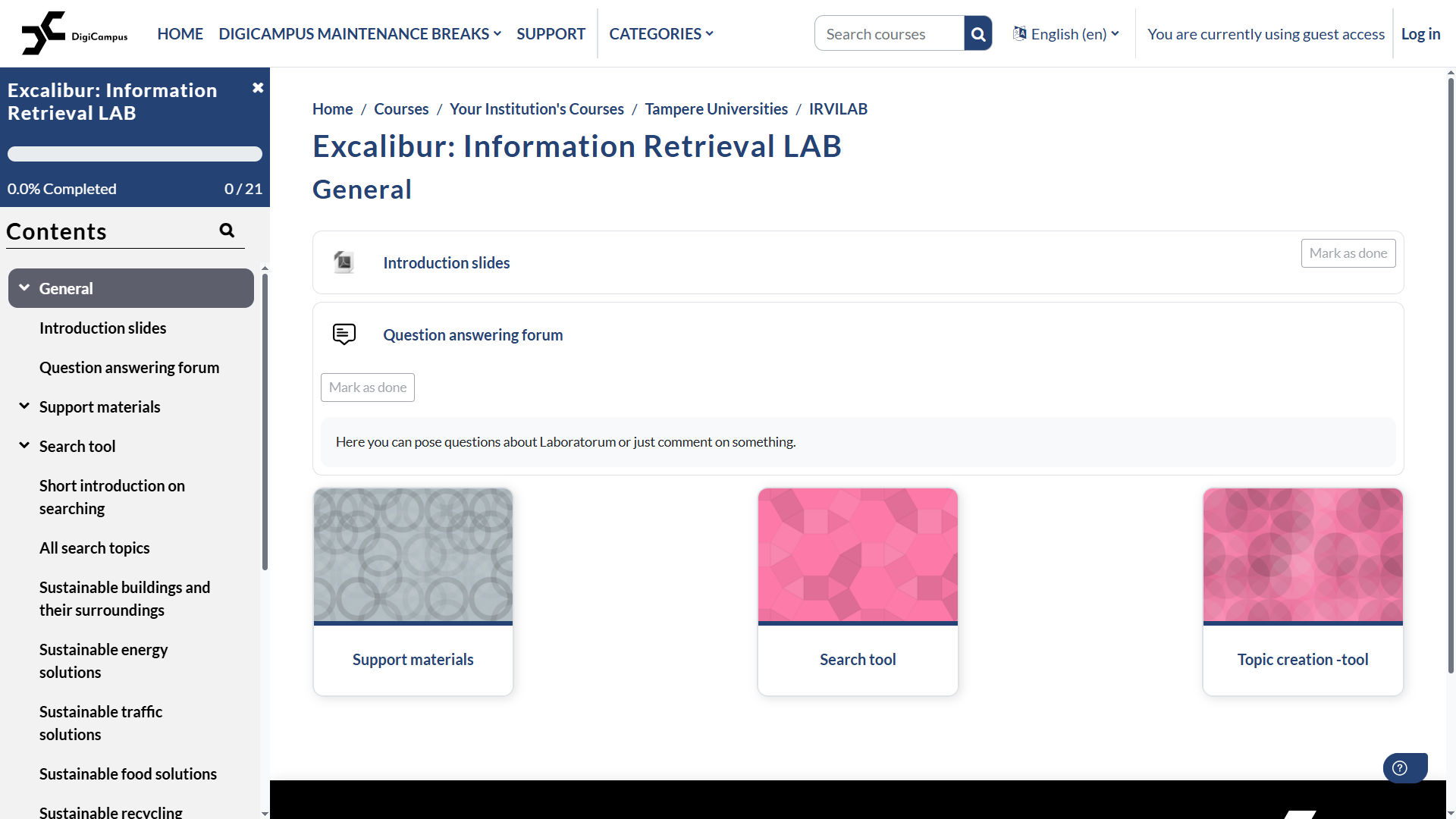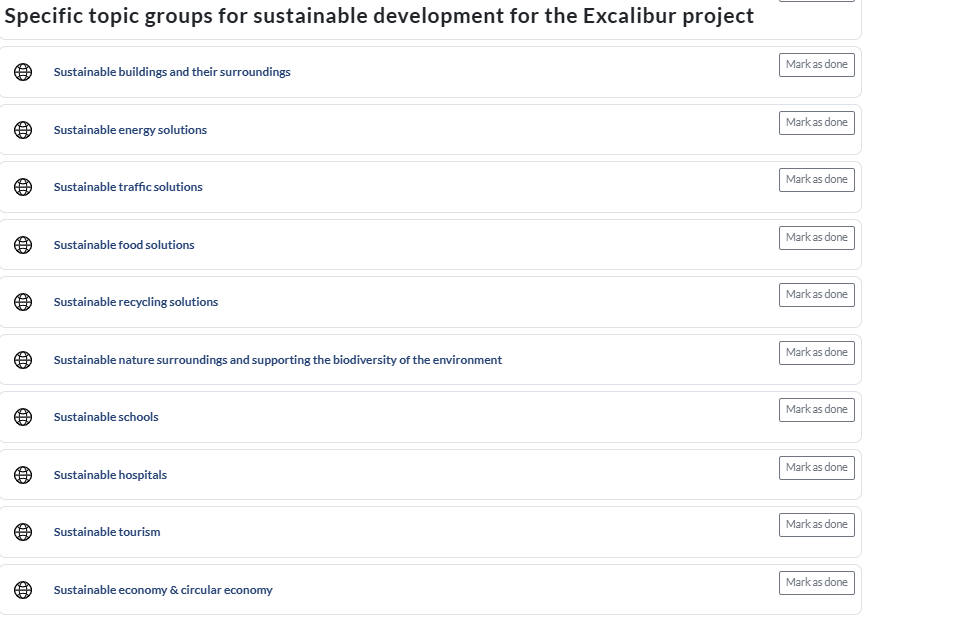SEARCH FOR KNOWLEDGE AS FOUNDATION FOR EXCALIBUR PROJECT BUILDING AND SURROUNDING CONSTRUCTION
Supporting steps for information retrieval
Compare what you already know about the theme. Where did you get this information?
By which criteria do you usually select your sources of information? Describe.
Please search for information on relevant data retrieval criteria, e.g.
https://libguides.tuni.fi/information-searching-guide/searching-process
Preparation of the 3D building project
What knowledge do you have in relation to the task: to build functional and right-focused objects in the 3D world – this prototype might also be transferred to real-world environment in the future?
What additional information is needed? Where do we look for it?
Identify new sources, including those possibly provided by your teacher.
What innovative research results can be found, e.g. on the pages/publications of your national universities and researchers, internationally, e.g. on the pages of research groups of foreign universities, Google scholar, Researchgate.net, Academia.edu?
Why isn’t all research as reliable, even if it wins the trustworthiness of information freely on the Internet? What are the criteria for the reliability of scientific research?
CONCLUSIONS BASED ON THE INFORMATION RETRIEVAL
What kind of improvements to the current situation are needed and can be achieved by developing the solutions for the theme of your group?
According to your new sources, what are the most important things when planning a sustainable solution for your group’s theme (what are the most important things to consider, what comes next…)? What sources did you find this out from?
What are the main conclusions? How do we transfer them to our 3D structures?
Download the above text as a file for e.g. using as a task sheet in class:
Additional material related to information retrieval:
Worksheet about recognizing fake news in English and in German:
Evaluating information sources (in English and in German):

Author: Laura Pihkala-Posti
Licensed under: CC-BY-NC-SA 4.0
Laboratorum
- A cost-free, scalable and inclusive learning infrastructure for information retrieval and AI education.
- A collaborative evaluation system, where participants assess information retrieval queries and AI agent prompts based on their relevance to the topic.
- Includes over 500 search topics with ~320,000 human-assessed documents and more than 75,000 human-made searches, primarily by students.
- Covers a wide array of topics, including sustainable development. Supports over 300 languages, enabling global participation and inclusivity.
- Link to a web course in Tampere University where you can try Laboratorum
Exercises for information retrieval in Laboratorum concerning the themes of the Excalibur project (in English):
Laboratorum front page

Sustainability topics to test Laboratorum with

Publications to Laboratorum:
Arvola, P. & Alamettälä, T. 2022. IRVILAB: Gamified Searching on Multilingual Wikipedia.
In: Proceedings of the 45th International ACM SIGIR Conference on Research and Development in Information Retrieval (SIGIR ’22). Association for Computing Machinery, New York, NY, USA, 3329–3333. https://doi.org/10.1145/3477495.3531662
Arvola, P., & Alamettälä, T. (2022). Enhancing Information Literacy Skills: A Game Design for Seeking Information and Making Queries.
In: Kiili, K., Antti, K., de Rosa, F., Dindar, M., Kickmeier-Rust, M., Bellotti, F. (eds) Games and Learning Alliance. GALA 2022. Lecture Notes in Computer Science, vol 13647. Springer, Cham. https://doi.org/10.1007/978-3-031-22124-8_33

Author: Paavo Arvola
Licensed under: CC-BY-NC-SA 4.0